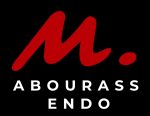Shop Now
Occlusion, Function, and Parafunction: Understanding the Dynamics of a Healthy Stomatagnathic System
Parafunctional activities associated with the stomatagnathic system
include lip and cheek chewing, fingernail biting, and teeth
clenching. Bruxism can be classified as awake or sleep bruxism.
Patients with sleep bruxism are three to four times more likely to
experience jaw pain and limitation of movement than people who
do not experience sleep bruxism. Signs and symptoms of bruxism
and parafunctional activity include hypertrophied masseter and
temporalis muscles, myocitis of these same muscles, morning jaw
stiffness, and sensitivity in a tooth or teeth. Additionally, migraine
is associated with parafunctional activity. Dental professionals are
responsible for diagnosing and managing parafunction. Patients
can be managed with oral appliances of various designs.
$10.00
| Langugage | English |
|---|---|
| Pages | 11 |
| CE | English |


Reviews
There are no reviews yet.